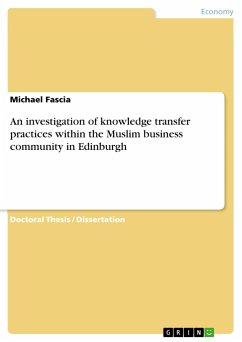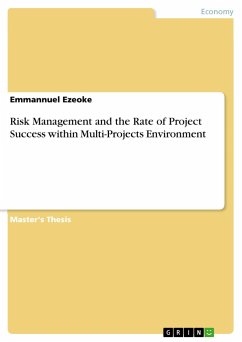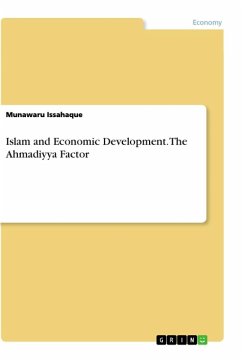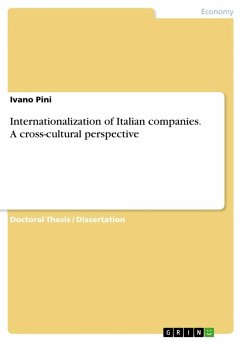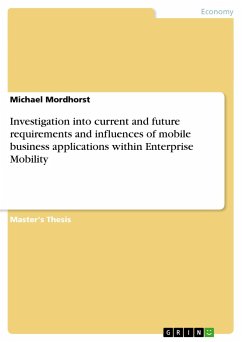Doctoral Thesis / Dissertation from the year 2013 in the subject Business economics - Business Ethics, Corporate Ethics, grade: 1.0, Edinburgh Napier University (Business School), language: English, abstract: This study seeks to understand knowledge transfer practices within the Muslim business community in Edinburgh. It investigates how knowledge transfer practices are managed on a day to day basis, examines the route of development and justification for these practices into meaningful knowledge transfer processes, and explores the underlying perspective of knowledge from the knowledge transfer practitioners view of knowledge transfer practices in a business context. In particular, the study seeks explanations for such practices with reference to both a knowledge-based and a resource-based view of the firm.Due to the multifarious phenomena of knowledge transfer, and to allow a scope necessary to establish epistemological and empirical evidence from literature, a two stage literature review process was adopted. The majority of literature expounds an argument in which knowledge and knowledge transfer processes in a business context are embedded within a set of real world dimensions, based on causal relationships. Literature determines that it is overcoming difficulties with this framework which is critical for a businesses ability to manage, utilise and extract value from multiple internal and external sources of knowledge. Four broad themes were identified, from which most literature supported this argument: Psychological, Organisational, Philosophical and Cultural.Data collection and analysis were carried out in two phases. Phase one was based on ethnographic participant observation which proved unsuccessful due to an underestimation of the complexity of the participants personal perspective and researcher bias. Phase two was informed by the difficulties encountered in phase one and proved successful in capturing meaningful data. Following a thematic logic, themes were carefully unpacked in an iterative process, so that an understanding of knowledge transfer experiences within the Muslim business community in Edinburgh became clear.In summary, the study provides a deep understanding of the knowledge transfer practices in the Muslim business community in Edinburgh. Through the systematic and dialectic analysis of knowledge transfer participants daily practices, the details and dynamisms underpinning knowledge transfer processes are revealed.
Hinweis: Dieser Artikel kann nur an eine deutsche Lieferadresse ausgeliefert werden.
Hinweis: Dieser Artikel kann nur an eine deutsche Lieferadresse ausgeliefert werden.

